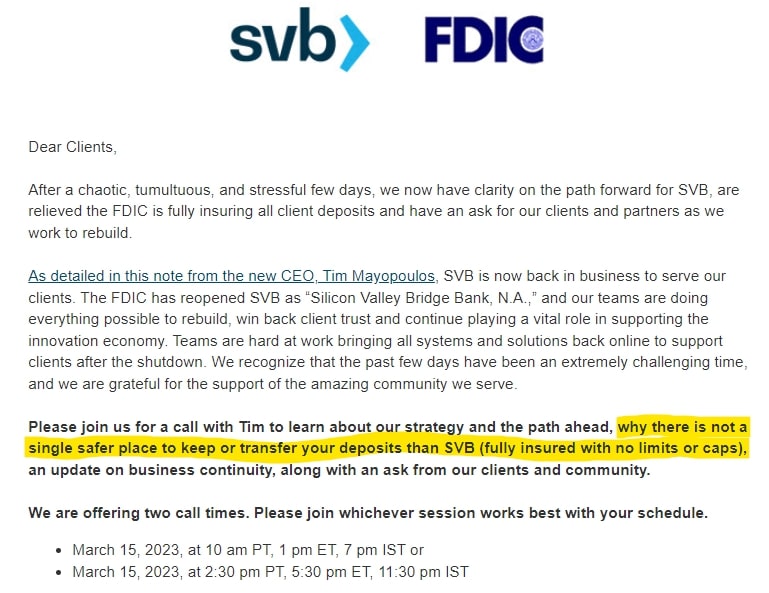Media puts positive — false — spin on bank bailouts
On Sunday, I wrote about the collapse of Silicon Valley Bank (SVB), “the largest U.S. banking failure since the 2008 financial crisis and the second-largest ever.” Depositors with up to $250,000 in SVB were fully covered by the Federal Deposit Insurance Corporation (FDIC), but, above that, they had to swallow the potential losses.
Or perhaps not. In response to pressure from Silicon Valley venture capitalists who are significant donors to the Democratic Party…sorry, I meant to say in response to worries about contagion, further bank runs, and ‘systemic’ risk, the Federal Reserve and Biden administration moved quickly to offer coverage to all deposits in SVB.
The Fed’s statement says that:
“No losses associated with the resolution of Silicon Valley Bank will be borne by the taxpayer. . . Any losses to the Deposit Insurance Fund to support uninsured depositors will be recovered by a special assessment on banks, as required by law.”
But banks will simply pass the costs of this bailout onto the rest of us with higher banking fees.
How did the media cover this transfer of wealth from average Americans to SVB’s relatively wealthy depositors? The Pioneer Press carried a report from the Associated Press — which can be relied upon to regurgitate any administration talking point — titled ‘U.S. government moves to stop potential banking crisis.’ Isn’t that nice of them?
The problem is that it isn’t true. On Sunday I argued that SVB was crushed by “gyrations” in Federal Reserve monetary policy. But SVB was the first bank to fail because it was engaged in relatively risky practices. And, by putting the average American on the hook when risky practices get found out, the Federal Reserve and Biden administration make it more likely that financial institutions will undertake these risky practices.
This is what economists call ‘Moral Hazard‘ — “The tendency of insured persons to take more risks or use more of the service, raising the cost for others…” Empirical research finds that schemes like the FDIC and bailouts like that for SVB only make the financial system more fragile precisely because they inject moral hazard into the system. As economists Thomas L. Hogan and Kristine Johnson note, “most empirical studies find that deposit insurance deceases stability.” Furthermore:
…international studies of deposit insurance systems around the world indicate that countries with higher levels of deposit insurance coverage and countries with more government involvement in the administration of deposit insurance tend to have higher numbers of bank failures and more frequent financial crises.
The truth, then, is exactly the opposite of what Associated Press would have you believe.
UPDATE: SVB is now using its newly bailed out, government backed, risk free status as a selling pitch:
